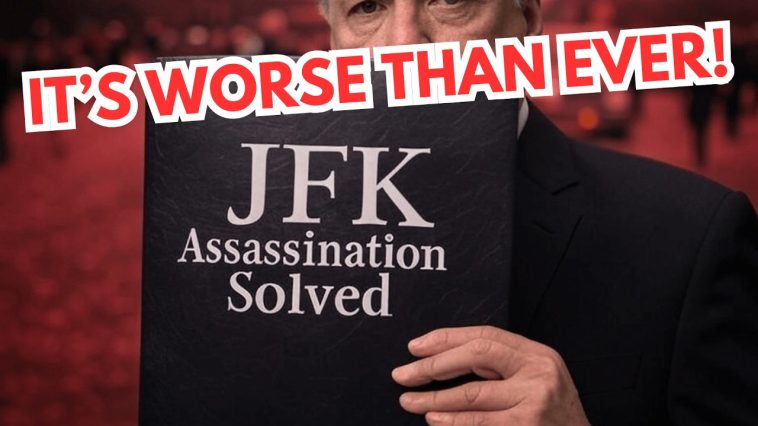John F. Kennedy’s assassination remains one of the most pivotal and controversial moments in American history. On November 22, 1963, President Kennedy was fatally shot while riding in an open-top limousine through Dallas, Texas. The nation was left in shock as news of the tragic event spread quickly, and questions about the circumstances surrounding his death began to emerge immediately. The official inquiry, led by the Warren Commission, concluded that Lee Harvey Oswald acted alone, yet doubts about this narrative have persisted over time.
▬Contents of this video▬
00:00 – Intro
00:51 – The Legacy of an Unsolved Tragedy
02:03 – The Contribution of Paul Landis
03:46 – Controversial Claims: Gary Fannin and the LBJ Theory
06:32 – A Multifaceted Debate with No Final Answer
08:19 – Outro
Like this content? Subscribe here: https://www.youtube.com/factsverse?sub_confirmation=1
Or, watch more videos here: https://www.youtube.com/playlist?list=PLkXAntdjbcSJlJnpP4FgdU0swKbnkNgJj
Become a Facts Verse member and get access to all videos that contain mature content. Use the link below to get access to even more videos, ad-free.
https://www.youtube.com/channel/UCXZpQgX1897wYDLtvzmgyIA/join\
Over the decades, numerous theories have emerged, questioning the possibility of a broader conspiracy. Critics argue that inconsistencies in the evidence, conflicting eyewitness accounts, and the rapid closure of the investigation have left significant gaps in the official explanation. As a result, books, documentaries, and academic studies have continually revisited the details of that fateful day, suggesting that other parties, including elements within government or organized crime, may have been involved.
In recent years, renewed discussion about Kennedy’s assassination has gained momentum. The release of previously classified documents, along with advances in forensic technology, has provided fresh insights that prompt experts and researchers to re-examine the historical record. This resurgence of interest is also driven by the modern era’s emphasis on transparency and accountability in government. As new analyses emerge, traditional interpretations of the event are being challenged, with some advocates calling for a comprehensive re-investigation into all aspects of the case.
The enduring fascination with President Kennedy’s legacy, combined with modern investigative tools, has transformed public discourse surrounding the assassination. Today, renewed discussion serves not only as a means to honor his memory but also as a reminder of the importance of questioning historical narratives and seeking truth. In this ongoing debate, every new piece of evidence contributes another layer to a complex and unresolved puzzle that continues to captivate historians and the public alike.
Recent scholarly debates and investigative breakthroughs have reinvigorated interest in the Kennedy assassination, prompting calls for further governmental transparency and a fresh, unbiased review of historical records to finally resolve the enduring mysteries surrounding that fateful day with renewed urgency.
JFK Assassination Finally Solved And It’s Worse Than We Thought



